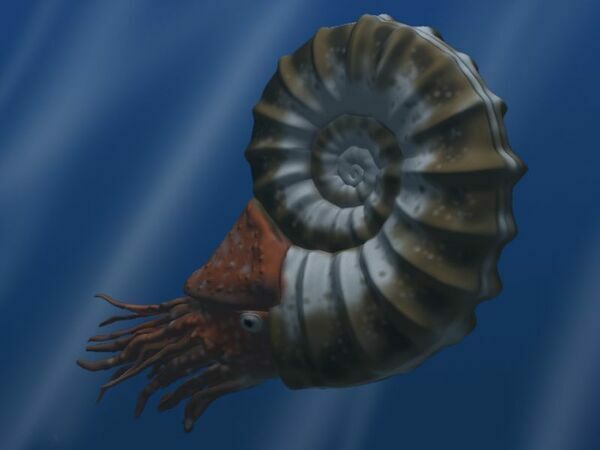5.9" Cut & Polished, Agatized Ammonite Fossil - Madagascar
This is a beautiful, 5.9" wide, cut and polished Cleoniceras ammonite fossil from Ambatolafia, Madagascar. These ammonites are Late Cretaceous (Albian Stage) stage in age, or approximately 110 million years old.
It exhibits gorgeous mineralization within the chambers, each separated by white calcite septa (divisions). This highly polished, exotic ammonite makes a superb display piece with tremendous historical appeal.
Both halves are included along with a pair of display stands.
It exhibits gorgeous mineralization within the chambers, each separated by white calcite septa (divisions). This highly polished, exotic ammonite makes a superb display piece with tremendous historical appeal.
Both halves are included along with a pair of display stands.
About Ammonites
Ammonites were ancient marine cephalopods, similar to today's squids and octopuses, but with a defining feature: their distinctive, tightly coiled spiral shells. These shells, resembling those of modern nautiluses, served as both a protective home and a buoyancy aid, allowing ammonites to navigate the prehistoric seas with ease. First emerging around 240 million years ago in the Triassic Period, ammonites thrived for over 175 million years, adapting through numerous forms and sizes. As predatory creatures, they likely fed on smaller marine organisms, using their tentacles to capture prey. However, their long reign came to an end 65 million years ago at the close of the Cretaceous, coinciding with the mass extinction event that also eliminated the dinosaurs.
Ammonites were ancient marine cephalopods, similar to today's squids and octopuses, but with a defining feature: their distinctive, tightly coiled spiral shells. These shells, resembling those of modern nautiluses, served as both a protective home and a buoyancy aid, allowing ammonites to navigate the prehistoric seas with ease. First emerging around 240 million years ago in the Triassic Period, ammonites thrived for over 175 million years, adapting through numerous forms and sizes. As predatory creatures, they likely fed on smaller marine organisms, using their tentacles to capture prey. However, their long reign came to an end 65 million years ago at the close of the Cretaceous, coinciding with the mass extinction event that also eliminated the dinosaurs.
$99
SPECIES
Cleoniceras sp.
LOCATION
Ambatolafia, Mahajanga Province, Madagascar
SIZE
5.9" wide (each half)
CATEGORY
SUB CATEGORY
ITEM
#310608
We guarantee the authenticity of all of our specimens.
 Reviews
Reviews












